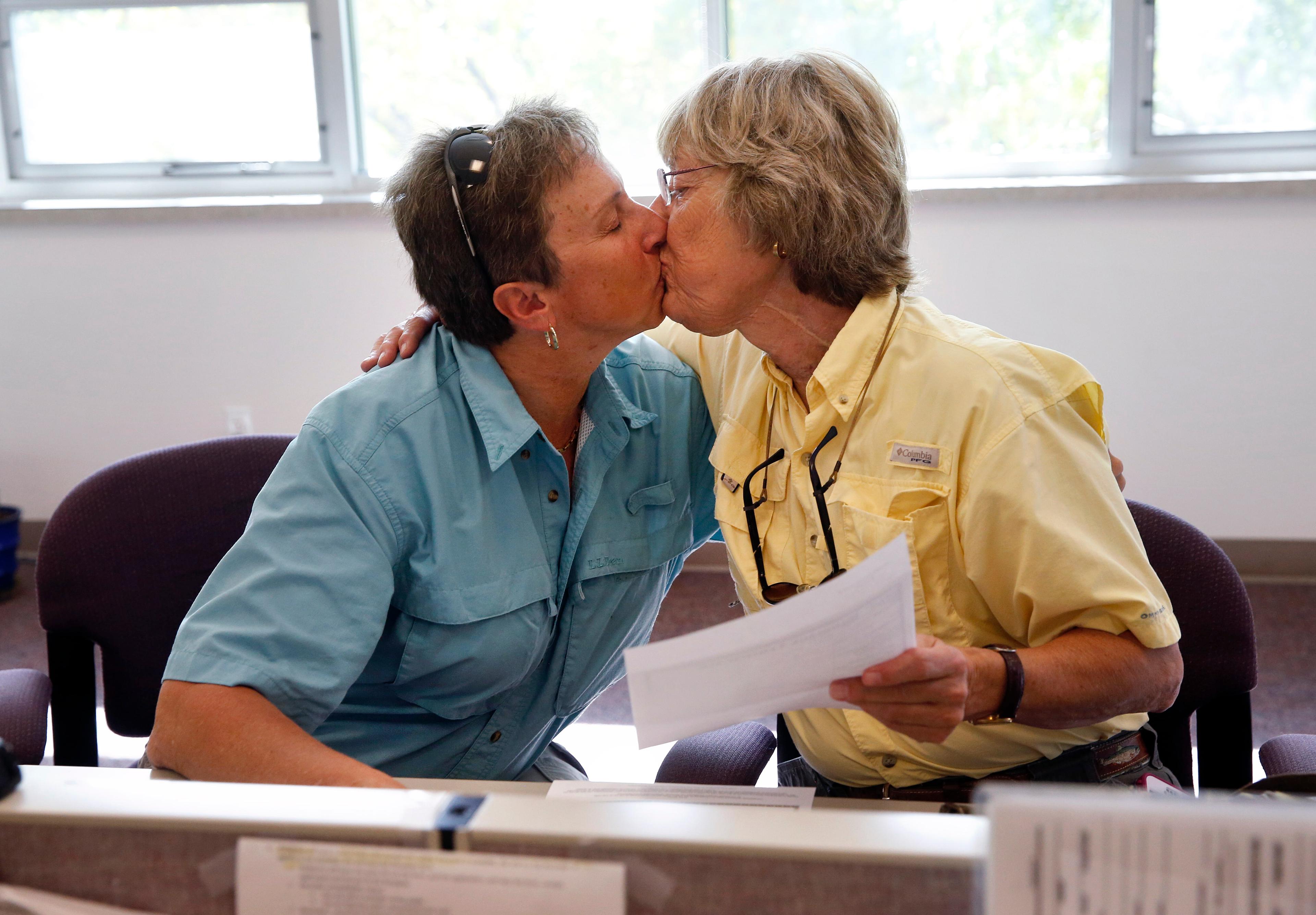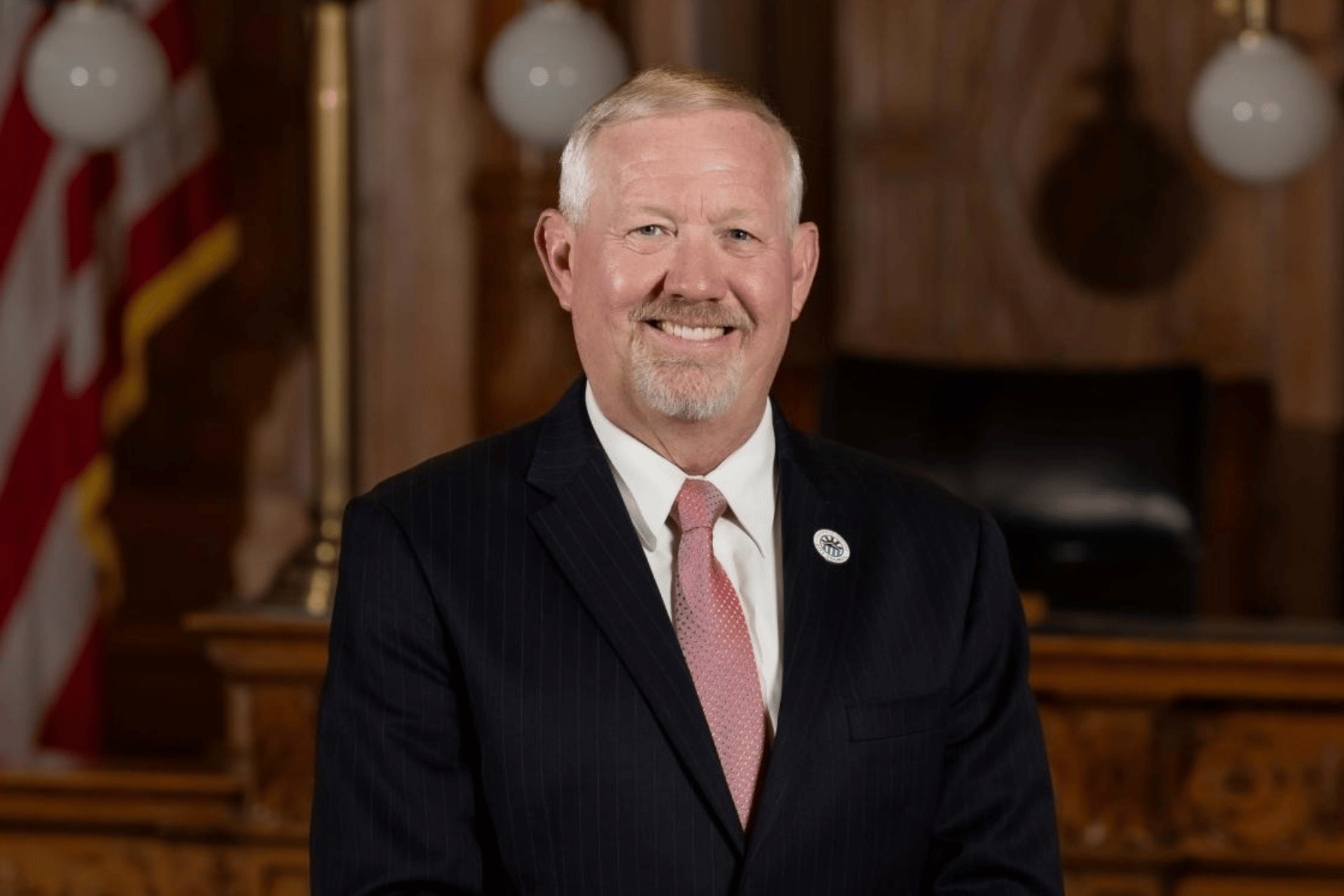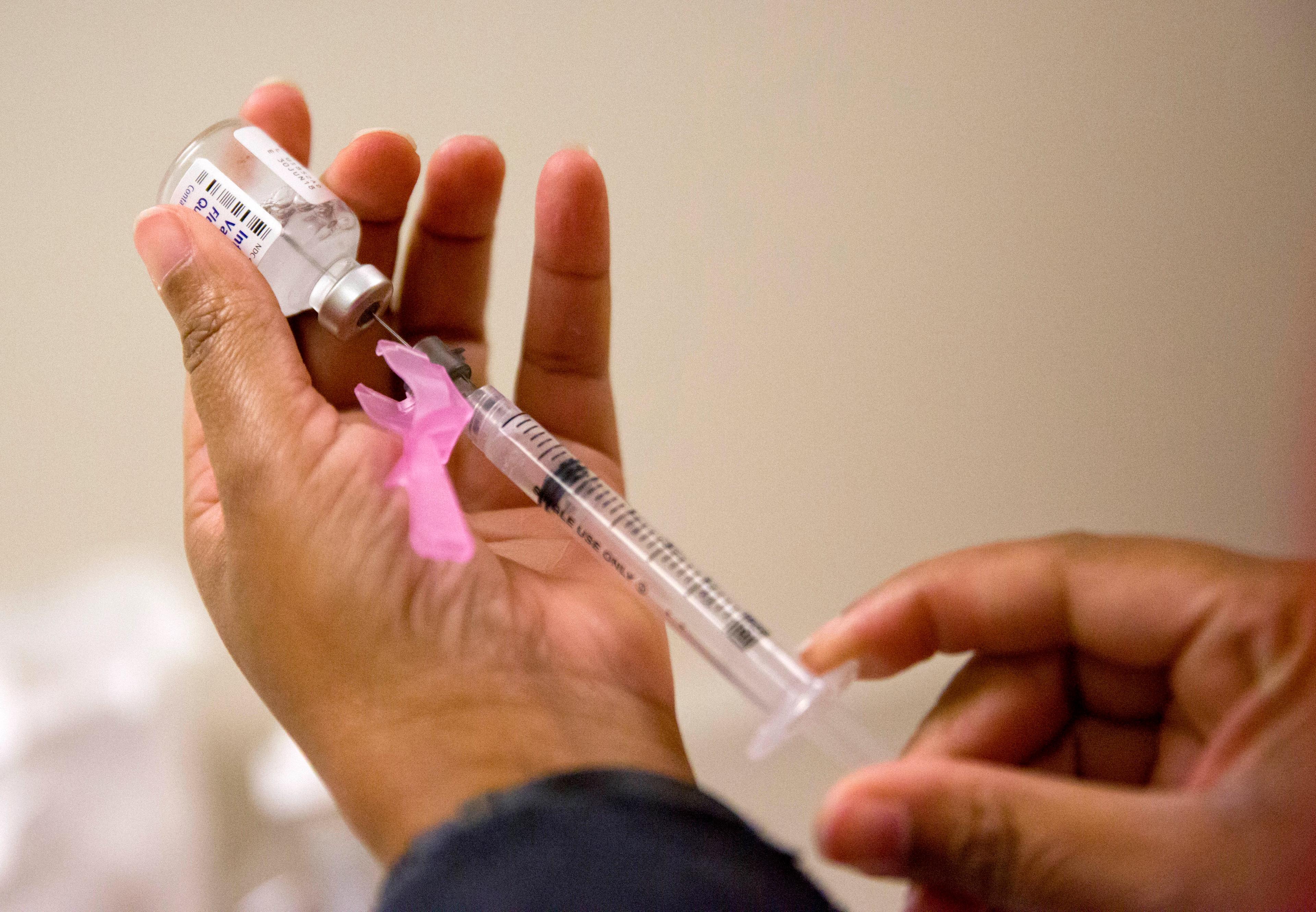
Amendment J, which takes language out of Colorado's constitution that declared marriage only to be valid if it’s between a man and a woman, passed decisively Tuesday night.
Voters put the ban into the state constitution in 2006, adding an amendment that stated, “Only a union of one man and one woman shall be valid or recognized as a marriage in this state.”
But the federal government has since come up with a different position on the matter. In 2015, the U.S. Supreme Court ruled in a 5-4 decision to extend the federal right to marry to couples of the same sex. Then, Congress went a step further, in 2022 repealing language in federal law banning marriage between gay couples.
Because Amendment J repeals a portion of the state constitution, it only needed a simple majority vote to pass, instead of the 55 percent threshold needed when new provisions are added to the constitution.
Those in favor of Amendment J include One Colorado, an advocacy organization self-described as dedicated to advancing equality for lesbian, gay, bisexual, transgender, and queer Coloradans and their families.
According to Executive Director Nadine Bridges, the measure protects people, in case of a repeal of the Supreme Court’s protection of same-sex marriage – a possible outcome, she says, given the Supreme Court’s decision on abortion.
“We worked to get the referred measure through the House and Senate in order for Amendment J to happen, so we fully support it,” she said in an interview. “We believe it’s one more opportunity to create equality for same-sex couples for those who choose to get married. We want to make sure we’re protecting our communities that choose to be married.”
She said the high court’s ruling on same-sex marriage could be just as impermanent as its ruling on abortion.
“The reality is, just like what happened for Roe v. Wade, we are seeing some of our justices allude to following the same precedents to take [it] down,” Bridges said. “If that happens in the state of Colorado, Amendment 43 would be in effect ... we want to make sure we are being preemptive and removing this from our constitution so that we don’t have an impact.”
She said that once couples marry, they shouldn’t have to worry if their marriage suddenly isn’t legally valid.
“We most certainly don’t want folk to have to question if something were to happen at the federal level through the Supreme Court. We don’t want anybody to be concerned, and so the best way to do that to ensure fully that same-sex marriage can continue to occur in the state is to repeal Amendment 43,” she said.
Among the groups that opposed was Focus on the Family, based in Colorado Springs, which describes itself as “a global Christian ministry dedicated to helping families thrive,” one that provides “help and resources for couples to build healthy marriages that reflect God’s design and for parents to raise their children according to morals and values grounded in biblical principles.”
Focus on the Family’s spokesperson and Life Issues Analyst Nicole Hunt said the Colorado Springs-based organization’s opposition to Amendment J is based on its values.
“We believe strongly in the constitutional definition of marriage as the union of one man and one woman that currently exists in the Colorado Constitution,” she said. “While when the Supreme Court made marriage something that it’s actually never been, they put the entire force of the courts, government, law, behind this newly created institution of same-sex marriage.”
Another opponent was the Colorado Catholic Conference, which represents the three Catholic dioceses of Colorado.
Its Executive Director Brittany Vessely wrote in an email: "Amendment J will remove the constitutional definition of marriage as the ‘union of one man and one woman.’ Marriage is based on the truth that men and women are complementary, the biological reality that reproduction depends on a man and a woman, and the social science that supports the fact that children need both a mother and a father to flourish. Amendment J rejects the truth of what marriage is.”









